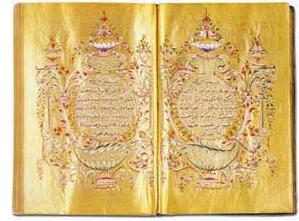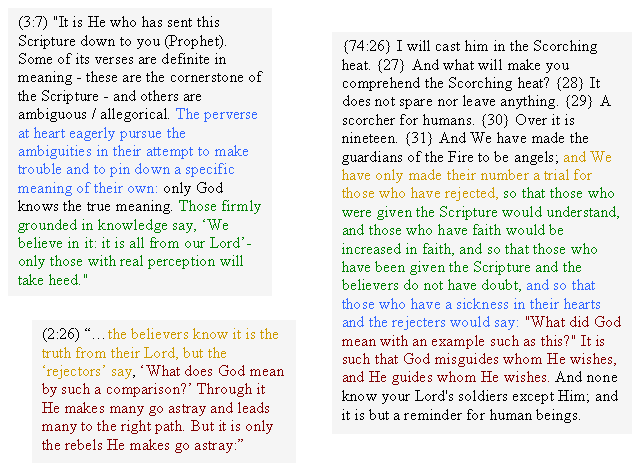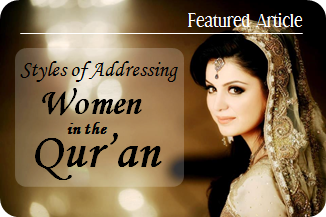


The Number 19 - Has God Authorised its Use?

The number 19 may reveal mathematical structure in the Qur'an. This may even be astounding to witness, and can even be a phenomenon that contributes to proving that the Qur'an is indeed authored by none other than God, since such a consistent and intricate structure is impossible to have been devised by a man.
The matter becomes different when we try to prove the authenticity of the Qur'an, based on what we find with the number. Because, now we enter an arena where we are utilising our own observed phenomena to criticise the authenticity of Quranic verses - and God has already assured the Quran's protection. For it to be a valid method of verification, the method must have Scriptural approval in order for it to be a part of, or a method which achieves God's promise of protection of the Qur'an. It does not matter how intricate that "observed phenomena" may be, God has to approve the methodology so that the outcome of any analysis may be considered an output of a 'divinely' approved method and thus valid for use. This is because the method itself has to work in all cases i.e. indicates correctly the authenticity of all verses. The only way to be certain that it does work, is to have assurance from God that this is an infallible method. If this cannot be attained, then any speculative conclusions will always have the uncertainty that it may have arisen due to the fact that, despite the interesting phenomena, God has simply left it such that it yields that result - it has no bearing on determining the authenticity of verses. In other words, just because a method gave consistent results most of the time, it may not give all the time, and this may well be intended.
The two Verses Declared Anomalous by Dr. Rashad Khalifa
After applying the observed phenomena with no. 19, Dr. Rashad Khalifa found the following two verses to be not in compliance with the mathematical structure he discovered. He thus asserted that these two verses were not part of the original revealed Qur'an, but were later inserted into the manuscripts:
(9:128) "A Messenger has come to you from among yourselves. Your suffering is distressing to him. He is deeply concerned about you, and is gentle and merciful to the believers."
(9:129) "If they turn away, then say: "God is enough for me, there is no god but He, in Him I put my trust and He is the Lord of the great throne.
The above two verses are beautiful in their message. There is nothing defective, or inconsistent about their content. It is a serious matter in the Qur'an for any person to declare any of its verses to be fabricated. This is because the Qur'an has numerous expressions such as "those who deny God's verses...". It is appreciated that upholders of the theory maintain they are not denying God's verses, since they maintain the aforementioned verses were never part of the revelation i.e. they are rejecting what is already a fabrication. But, since the consequence of denying God's verses is great, and that those two verses have been there throughout history, it again proves to us the significance of having divine approval for the methodology that is about to declare what was for 1400 years, a complete and perfect Qur'an.
Has God Authorised the Use of the Number 19 in the Qur'an?
The reality is that the number 19 has not been authorised in the Qur'an for use in preservation of the Qur'an.
"Over it are 19" (Qur'an 74:30)
The number is referring to the number of angels guarding Hell shown by the context of the verse:
{26} I will cast him in the Scorching heat. {27} And what will make you comprehend the Scorching heat? {28} It does not spare nor leave anything. {29} A scorcher for humans. {30} Over it is nineteen.
At this point, there are nineteen 'somethings' over hell. Following verse 31 is very dynamic as it has many entwined ideas in it, important for our discussion, as well as revealing that these are nineteen angels guarding over hell.
{31} And We have made the guardians of the Fire to be angels; and We have only made their number a trial for those who have rejected, so that those who were given the Scripture would understand, and those who have faith would be increased in faith, and so that those who have been given the Scripture and the believers do not have doubt, and so that those who have a sickness in their hearts and the rejecters would say: "What did God mean with an example such as this?" It is such that God misguides whom He wishes, and He guides whom He wishes. And none know your Lord's soldiers except Him; and it is but a reminder for human beings.
Dr. Khalifa's proposition suggests that:
● For 1400 years, all the copies of Qur'an and memorisations of the Qur'an contained a huge error. This in essence means for fourteen centuries, God failed to keep His promise to protect the Qur'an from corruption - all believers in this time period had a corrupted Qur'an. God's promise becomes futile if it took fourteen hundred years for the error to be detected.
● If, just for the sake of argument, the no. 19 was intended to be used for verification, it would be a means so difficult that it took the aid of computers not available for almost 1400 years, it means the Qur'an was left open to corruption for this huge time period. This does not make sense because when God says He would preserve it, He means it from day one.
Furthermore, Verse 31 strikes interesting parallels with what Dr Khalifa ended up doing from his research. Primarily, the Qur'an is a Book of guidance for all people - not mathematicians. It is a 'Recital' and a Book to be 'recited', read and followed by studying its message. Verse 31 reads, "We have only made their number a trial for those who have rejected". In essence, this is what has been done. 19 has led to the rejection of perfectly fine Quranic verses. "And so that those who have a disease in their hearts and the rejecters would say: "What did God mean with an example such as this?"
The expression, "What did God mean with an example such as this?" about no. 19, depicts a mindset which wishes to pursue an expression further and beyond what role God intended for it to play. In this case, 19 was 'merely' the number of angels guarding hell, but engrossing with the number in a way the Qur'an did not intend finally led to declaring the Qur'an to contain falsified verses. No doubt, the number 19 may reveal many intriguing patterns, but the point is that the Qur'an never sanctions such use of this number (in verification) and God's promise to protect the Qur'an remains independent of any study with this number.
The expression, "And so that those who have a disease in their hearts and the rejecters would say: 'What did God mean with an example such as this?'" relates to another verse in the Qur'an:
"It is He who has sent this Scripture down to you (Prophet). Some of its verses are definite in meaning - these are the cornerstone of the Scripture ("أُمُّ الْكِتَاب / ummul-kitab") - and others are ambiguous / allegorical (mutashabihaat / مُتَشَابِهَاتٌ). The perverse at heart eagerly pursue the ambiguities in their attempt to make trouble and to pin down a specific meaning of their own: only God knows the true meaning. Those firmly grounded in knowledge say, ‘We believe in it: it is all from our Lord’- only those with real perception will take heed." (Qur'an 3:7)
Where the two expressions, "The perverse at heart..." (3:7) and "those who have a disease in their hearts..." (74:31), and their respective actions described both are same behaviour and mention an ailment of the heart - hence, refer to the same people.
Let alone 19 not being sanctioned for such use, God rebukes getting lost into deep studies with "mutashabihaat / مُتَشَابِهَاتٌ" verses - studies that are not in harmony with overall and core content of the Qur'an and how it should be followed (they are not part of أُمُّ الْكِتَاب / ummul-kitab, core message and principles of the Book). Mutashabihaat / مُتَشَابِهَاتٌ verses should not digress a believer into dragged-out studies of its contents due to their in-built feature of misleading - this is a trap laid for the unwary and warned of in 3:7.
An interesting prophetic element in the above verse is that, when analysis and conclusions from mutashabihaat / مُتَشَابِهَاتٌ verses are put forward to a true believer, his response is ‘We believe in it: it is all (kul / كُل) from our Lord’ - they respond saying that all the verses are from God i.e. they do not accept the claims that verses are not from the Qur'an based on derivations from mutashabihaat / مُتَشَابِهَاتٌ" verses.
How do we Know that the Verse on 19 is a Mutashabih Verse ?
This is clear to a believer who is well grounded in the Qur'an. For example, a believer will notice such parallels as the following:

How are believers "increased in faith"? The response of people to this verse is a sign for believers: How the mentioning of this number in an intricate (mutashabih) verse can divert a people so much into deep studies with the number, to the point of declaring two verses void - How a disproportionate amount of time and effort is given into numerical calculations, rather than its message, just as warned in 3:7. Observing them shows a believer Allah's ability to lead and mislead people as well as how 3:7 comes to reality. 19 is a number of trial as mentioned in the verse, and this is the very significance of the number 19 in the Qur'an. It has been designed by Allah for this purpose. But as is stated in 3:7, the response of the believers is "We believe in it: it is all from our Lord’".
In conclusion, even though analysis with no. 19 reveals mathematical patterns, it is not a method valid for use in declaring which verses are and are not part of the Qur'an. The promise of God to protect the Qur'an started from the day the Qur'an was first revealed and has been valid throughout history, no verse was added or removed. All verses of the Qur'an are God's revealed words sent to Muhammad, God's final Messenger and Prophet.
See Also:

Copyright © , QuranicPath. All Rights Reserved.

